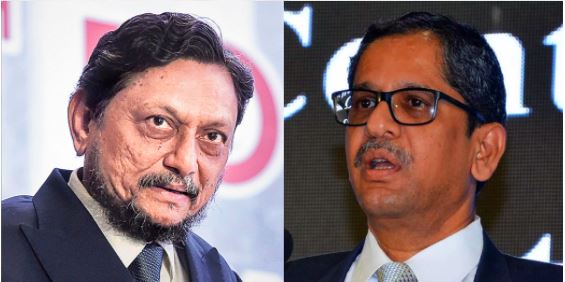Justice N V Ramana is set to succeed CJI S A Bobde as the new Chief Justice of India. This definitely means a faster judicial action and the end of inefficiencies in the ‘enforcement of contracts’ in the Indian judiciary. Ramana has served in the Supreme Court of India since 2014 when he was promoted to the apex court from Delhi High Court.
According to him, millions in the country have no access to justice due to poverty and illiteracy. Ramana recently said, “We are still a country with millions of people living without access to basic fundamental amenities of life, including access to justice. Although the reality is sad, the same should not demotivate us.”
“Ever since we declared ourselves to be an independent nation, we found ourselves caught between the twin problems of ‘poverty’ and ‘access to justice’. Sadly, even after 74 years of Independence, we are still discussing the same issue,” said justice Ramana, who is also the executive chairman of the National Legal Services Authority (NALSA).
Justice Ramana was born in an agrarian family on August 27, 1957, in Ponnavaram village of the State of Andhra Pradesh, and is known to be very passionate about providing justice to the people at the bottom of the society. He has a long career in the judiciary. He was a judge in the Andhra Pradesh high court and also acted as the Chief Justice in the same. He was elevated as Chief Justice of Delhi High Court in 2013 and promoted to Supreme Court of India in 2014.
A few weeks before his appointment as the CJI was announced, Jagan Mohan Reddy, the CM of Andhra Pradesh, whose many foolhardy decisions like multiple capital and change in the medium of instruction at government schools was blocked by the Andhra High Court, had written a letter against Ramana’s alleged involvement in Amaravati land scam case. However, the apex court dismissed the complaint after an internal inquiry.
“A complaint dated 6th October 2020 sent by the Chief Minister of Andhra Pradesh to the Supreme Court was dealt with under the In-House Procedure and the same, on due consideration, stands dismissed,” said the court.
Justice Ramana is expected to accelerate the judicial reforms that are being pursued by the Union government and the courts of the country to ensure that justice is served to the common people in the country.
Previously, the Economic Survey of 2019 argued the need for judicial reforms in a chapter titled ‘Ending Matsyanyaya: How to Ramp up Capacity in the Lower Judiciary’. The chapter draws the attention of the masses towards an important issue prevalent in the Indian judiciary and that is the ‘enforcement of contracts’. The chapter starts with “The Rule of Law and maintenance of order is the science of governance,” a quote by Kautilya in his much-celebrated work, Arthashastra.
According to the chapter, in the country, more than 3.5 crore cases are still pending in courts. The majority of these cases are in the district and subordinate courts. The chapter further argues that the country is following the law of the jungle or Matsyanyaya (where big fish eats small fish) due to the inefficient court system.
The Ease of Doing Business (EODB) ranking of the country gets hampered due to the inefficiencies in ‘enforcement of contracts’. India improved its ranking only by one point to reach 163 in the enforcement of contracts in the latest report while the overall ranking was 77. As per the Economic Survey, it is ironic for a country that has long idealised contract enforcement. As the Tulsidas Ramayana puts it,“praan jayi par vachan na jayi,” which translates to “one’s promise is worth more than one’s life,” the Indian judiciary needs an immediate reform in the form of contract enforcement and Justice Ramana can surely bring it.
As India aims to achieve a double-digit compound annual growth rate, it cannot afford to have more than 3.5 crores pending cases. The country cannot call itself just and judicious if it ranks 163rd in the enforcement of contracts. To become a 5 trillion dollar economy by 2024, the country needs to achieve a 100 per cent clearance rate and clear the backlog of unproductive years and Justice Ramana is expected to work in collaboration with the government on judicial reforms given his passion for serving justice to the poor.
